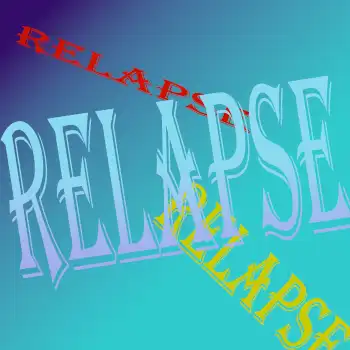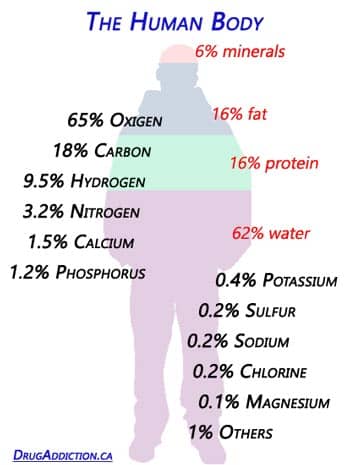Relapse-Free, Is There any Guarantee?
When faced with a loved one’s addiction, it is quite certain that seeing them be drug-free and doing well is the main interest. Of course, achieving this often requires specific prior steps.
The very first action is to get them to open up and discuss their condition. Another step would be gaining their agreement to seek professional addiction counselling. Also, making the choice of a suitable treatment facility and program to meet their needs is an important factor.
In some cases, assistance from an experienced interventionist was necessary to overcome the person’s refusal. But with all these steps done, what guarantee do you have that they will be free from their addiction? Signing up and starting a detox and rehab is not all there is to sobriety.

Physical Body and the Mind
Most facilities will not offer any guarantee. In fact, it is doubtful that any would. If it were just the body and putting it in a healthy state, one could guarantee some results.
For instance, a dentist can repair a tooth and guarantee it will no longer bother you (unless he’s completely incompetent.) Or a physician can prescribe antibiotics for a cold, and then it goes away.
But these address the physical aspects of the person solely. With addiction, of course, one can put the body back into a healthy state.
It requires stopping ingesting mind-altering substances that harm the body and its organs. And it would also include nutritional supplements and quality foods to rebuild the body to a healthy state.

The body can be put back into shape. Addiction of any kind also concerns the state of mind. But what of the mental aspects? The mindset?
Part of what makes a person dependent on any substance is habits, ways of thinking, and lifestyle. In this viewpoint, if the individual continues to eat bad food and sweets, he will again have bad teeth. Or if a person goes out without warm clothes, he will get a cold. There is one common denominator with each of these examples and any others you can bring forth: the individual and their mindset.
Making the Decision
In all aspects of living, the one common thing is the conscious person, the spirit, soul, or any other name you wish to give it. It is the one variable in all cases of physical or psychological issues.
Every individual you know, including yourself, has “free will.” You can get the best program available to treat addiction, but it’s the person who needs to decide to use the information.
There is always a choice in whether to use the tools or not, or to follow the program honestly. Let’s consider that each person entering treatment actually wants to stay drug-free. A good number of those entering rehab do complete the program. From this base, a rehab completion, let’s look at what could bring about relapse?

Safeguarding
Sobriety
The Main Five Reasons for Relapse
The first and most prominent reason would be to check if the person did the program honestly or brushed it off. It is surprising how many relapse abusers fit this category. A person may not have the right purpose in doing a treatment program.
Some will do it to avoid incarceration, a wife threatens to leave, or an ultimatum from the boss, etc. Any reason to do rehab other than personally wanting to stop is dishonesty toward oneself and the program. Relapse is almost certain.
The second reason for relapse would be to verify if the program suited the person and their needs. It occurs more often than one might suppose. Maybe they entered a program based on the 12-step method, and that is not their view.
Or the program would not allow for outside contact for any reason, yet this person runs a business and has kids, etc. He may “do” the program but has his attention elsewhere throughout his stay. This reason can present itself in a variety of manners. Maybe no gym, and the person likes to keep in shape, etc.
A third reason for relapse is that the person completed their program but has not changed any of their early acquaintances or locations. They go right back to the same apartment, right around the corner from the local “watering hole.” Within days, they might bump into their ex-dealer or drinking buddy.
Going by the same bar will bring up the memories of drinking and using, and trigger something. Remember, every daily drug or binge use creates memories and can reactivate desires, especially in more challenging moments. Change is good, and relocating is better.
A fourth reason for relapse is a bit less common but still worth mentioning. The person who did the addiction recovery is the only one who changed. After doing a good addiction recovery, the person should feel way better than when they entered. But, mom, dad, girlfriend, or whoever else still has their memories of the person before rehab.
They may not realize that the person has changed into who they are now. The surrounding people may still mistrust and question every decision and behaviour. This situation can bring doubt to the person. They may question themselves, “Am I really okay?” resulting in lowered confidence and the route to relapse.
A fifth reason for relapse is when a person finishes a good substance abuse treatment but puts themselves in harm’s way. It can be as simple as watching a football game at a buddy’s place where there will be drugs or alcohol.
You may believe you’re ready, but why gamble with your sobriety until you have shown a lengthy dry spell? Sometimes, going straight home after work is more beneficial than stopping by a strip club with fellow workers. More on relapse.
Remaining Drug-Free
If the program for rehabilitation from substance abuse is the right one and you did the program honestly to stay sober, there is no reason you cannot have a happy, drug and alcohol-free life.
It is by no means an easy journey, but it is achievable with hard work and dedication to the goal of staying drug and alcohol-free. The only other key factor in avoiding any reasons for relapse is to know that you are no longer part of that lifestyle.
Be able to state that you are not a drug user or a drinker. Have a strong purpose and goal to achieve, and stay productive. You can remain free from drugs and alcohol for a lifetime.
Related Topic:
Find out more about us.

Marc Bernard
Author,
Addiction Field Specialist,
Referral & Consultation Counsellor, Ethics in Practice – NAADAC
Reviewed by Susan. Chubbs Drug and Alcohol Treatment Specialist


